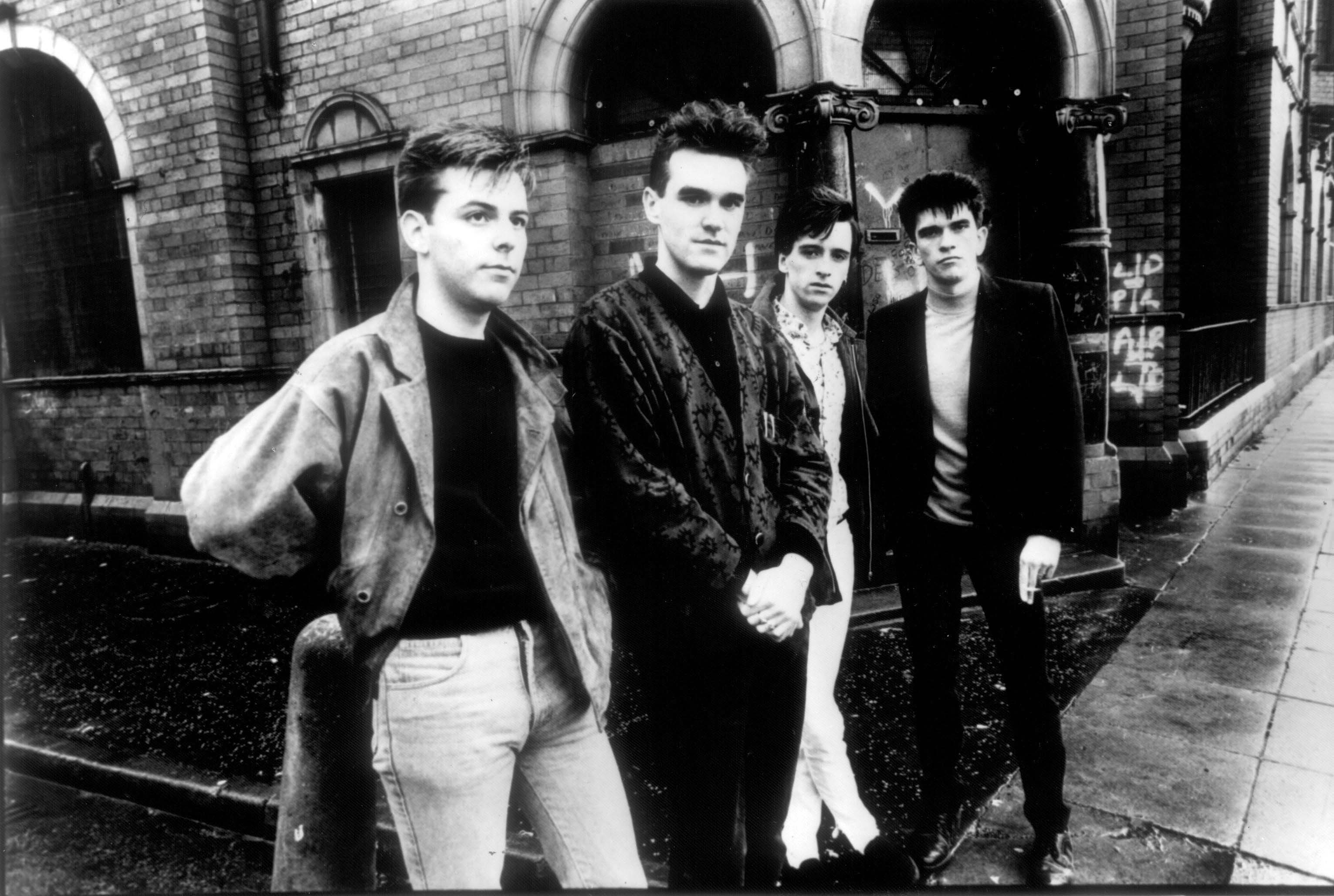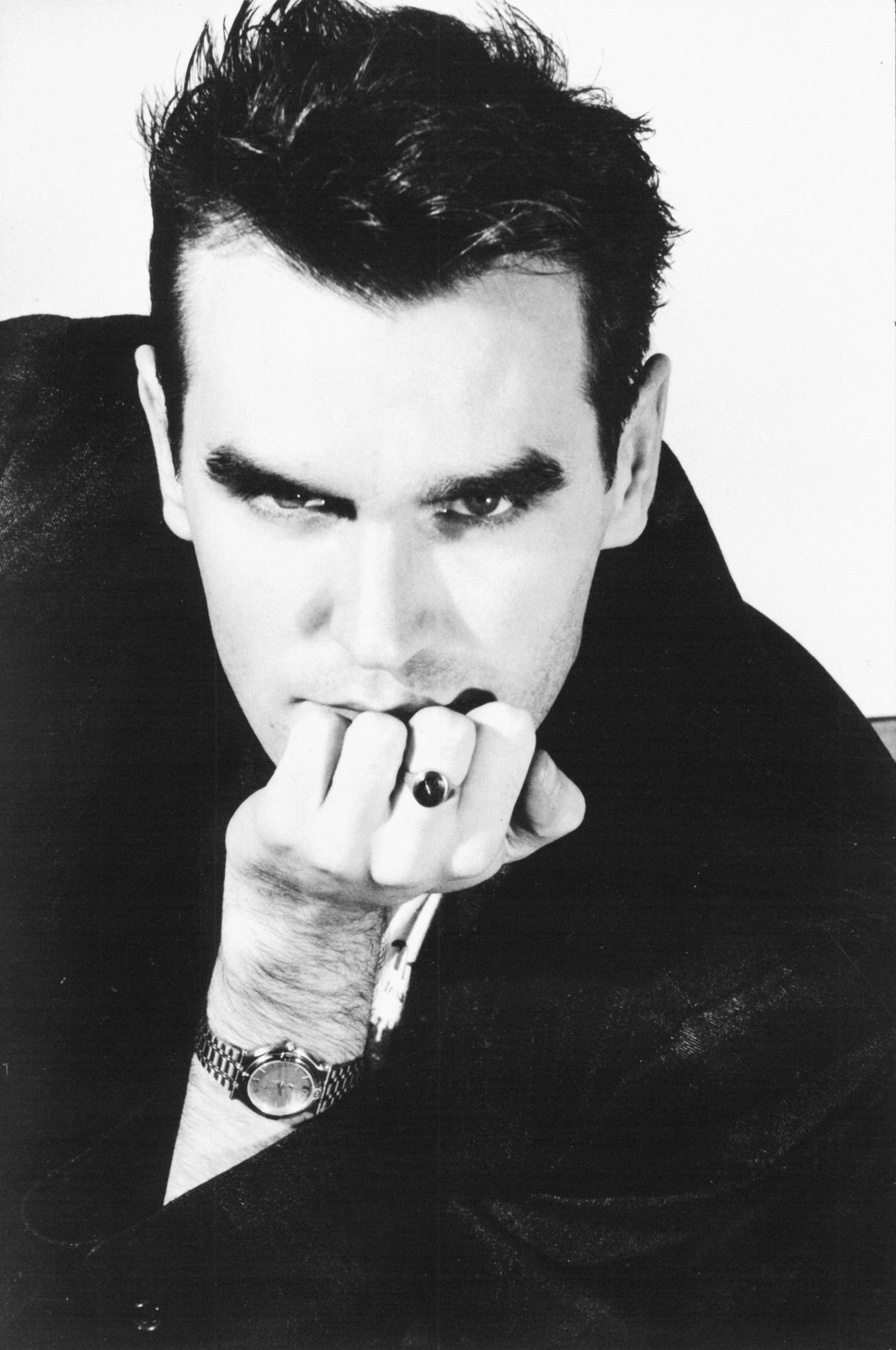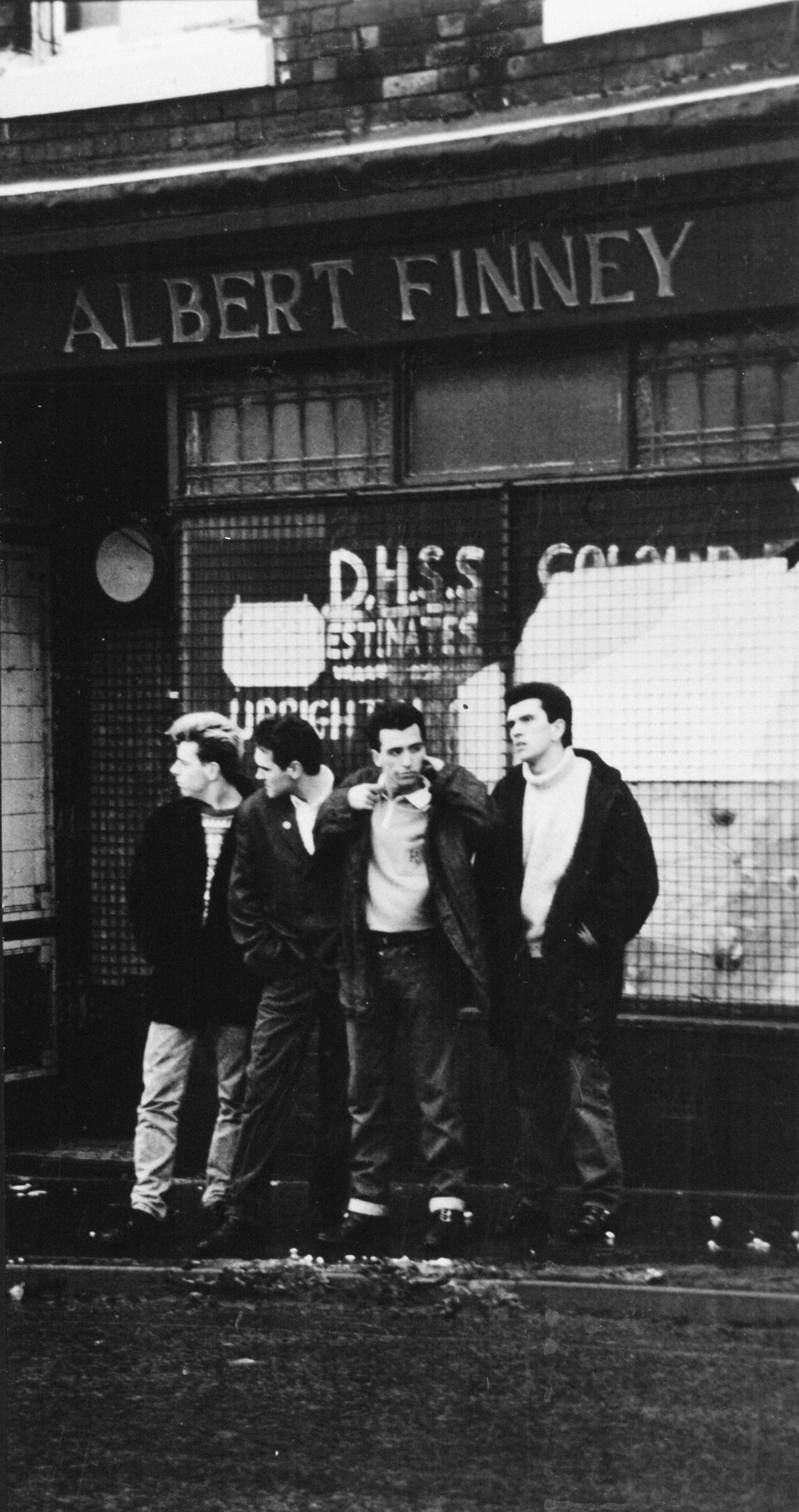There Is a Light That Never Goes Out
By Morrissey and Johnny Marr

All four members of The Smiths – Morrissey, Johnny Marr, Andy Rourke and Mike Joyce – came from Irish backgrounds. Having originally met at a Patti Smith gig in May 1982, Johnny Marr (real name John Martin Maher) invited Morrissey (Steven Patrick Morrissey) to form a band. Thus was born one of the most significant UK songwriting partnerships since the halcyon days of Lennon & McCartney (The Beatles) and Jagger & Richards (The Rolling Stones). During an astonishingly productive five-year run, The Smiths released a string of classic albums, starting with their self-titled 1984 debut, and continuing with the UK number one Meat Is Murder (1985) and The Queen Is Dead (1986), which reached No.2. Widely acknowledged as the band’s masterpiece, the standout track was ‘There is a Light That Never Goes Out’, which alchemises Morrissey’s affecting lyrics and Marr’s virtuoso guitar-playing to virtual perfection. UK magazine NME named it as the 12th Greatest Song of All Time.
The Story Behind The Song
Over the years, the Irish diaspora has had a major influence on the music scenes in the northern English cities of Manchester and Liverpool. Iconic Mancunian group The Smiths are among the prime examples.
The Smiths were one of those groups for whom things fell into place apparently effortlessly. Having enjoyed landmark success with Joy Division and New Order, Factory Records – run by broadcaster Tony Wilson – was Manchester’s flagship label, but The Smiths signed instead with Geoff Travis’s London-based Rough Trade. Geoff Travis would go on to manage Irish superstars, The Cranberries, as well as – more recently – release albums by ‘new wave of Irish folk’ artists like Lankum, Lisa O’Neill and John Francis Flynn.
Similar to Irish new wave kingpins The Boomtown Rats, The Smiths had a ferocious work ethic and right from the off, they produced a remarkable volume of high quality material. Their debut single, 1983’s ‘Hand In Glove’, attracted favourable reviews, but it was the follow-up, ‘This Charming Man’ – released the same year – that truly announced the arrival of a singular group. With Morrissey’s mordantly witty, Wildean lyrics underpinned by a sublime ringing guitar riff from Marr, the song was eagerly seized on by the UK music press – enormously influential at the time – who were eager for a counterpoint to the glossiness of ‘80s synth-pop. In addition, Morrissey’s idiosyncratic charisma and Marr’s nonchalant cool gave the group instant star quality, all of which fuelled the critical and commercial success of the LPs, The Smiths and Meat Is Murder.

The penultimate track on The Queen Is Dead, is the haunting ‘There Is A Light That Never Goes Out’. The song was written in late 1985, during recording sessions for the album at London’s RAK Studios. Something of a companion piece to another Queen Is Dead tune, ‘Bigmouth Strikes Again’ – both are in the same key and have similar chords – ‘There Is A Light…’ found Marr taking musical inspiration from The Rolling Stones’ cover of Marvin Gaye’s ‘Hitch Hike’.
Later, the guitarist described the motif as an “in-joke” to see if the music press would attribute the influence to The Velvet Underground’s ‘There She Goes Again’, which he contended doffed the cap to ‘Hitch Hike’. “I knew I was smarter than that,” Marr observed. “I was listening to what The Velvet Underground were listening to.” In any event, when paired with the romantic fatalism of Morrissey’s lyrics, the riff yielded a majestic track, a highlight on a record generally recognised as one of the greatest ever ‘alternative' albums.
Marr would later describe the process of recording the song as “magical”, commenting: “Someone told me that if you listen with the volume really, really up, you can hear me shout ‘That was amazing’ right at the end.” A dispute with the record label would mean that, following the early taster for The Queen Is Dead, ‘The Boy With The Thorn In His Side’, another nine months would elapse before The Smiths issued another single. Though Rough Trade pushed for ‘There Is A Light That Never Goes Out’, Marr opted instead for ‘Bigmouth Strikes Again’.

Morrissey at 3 Arena by Kathrin Baumbach
Morrissey at 3 Arena by Kathrin Baumbach
There the song might have languished. However, five years after The Smiths’ demise, in October 1992, the track would be released as a single, to promote the compilation album…Best II. The single charted in the top 30 in both Ireland and the UK. Thus reinvigorated, the song has continued to grow in status and legend. Critically adored and a perennial fan favourite, ‘There Is A Light That Never Goes Out’ has been widely hailed as a masterpiece. It was the second Smiths song to top hugely influential BBC DJ John Peel’s Festive Top 50. It was named the 12th greatest song of all time by NME. Elsewhere, it provided the title for a chapter in Irvine Welsh’s million-selling cult classic novel Trainspotting, and has been covered by artists ranging from The Cranberries through The Divine Comedy to Marr’s spiritual heir, Noel Gallagher.
Johnny Marr is not shy about the song’s special appeal. “I didn't realise that ‘There Is a Light That Never Goes Out’ was going to be an anthem,” he said, “but when we first played it I thought it was the best song I’d ever heard.” Many fans of The Smiths would agree wholeheartedly. It is, perhaps, a tribute to the power of a great song title. In ‘There Is A Light That Never Goes Out’, Morrissey and Marr had successfully tapped into a universal sense of hope. No wonder there have been over 50 cover versions of the song already released, as well as a dozen instrumental versions.
The Queen Is Dead, meanwhile, charted at No. 2 in the UK, where it went platinum. The record also achieved gold certification in the US and Brazil, and was No.19 in the annual European Album charts. Universally acclaimed at the time of its release, the album has since received innumerable further accolades. It was named the second greatest British album of all time by NME, and it was selected for Rolling Stone's list of the 500 Greatest Albums Of All Time. Elsewhere, on the various lists of greatest ‘80s albums, Pitchfork placed it at No.6. Even better, Q ranked it at No.3.
Their collective parents may have been emigrants from Ireland, looking for a better life, but The Smiths have left a remarkable, enduring cultural imprint. A key influence on all of the major British rock acts of the last 35 years, from Suede to Franz Ferdinand, their sphere of influence has also extended into film, literature and even fashion. Truly, theirs is a light that never goes out.

Photo by by Jo Novark
Photo by by Jo Novark
